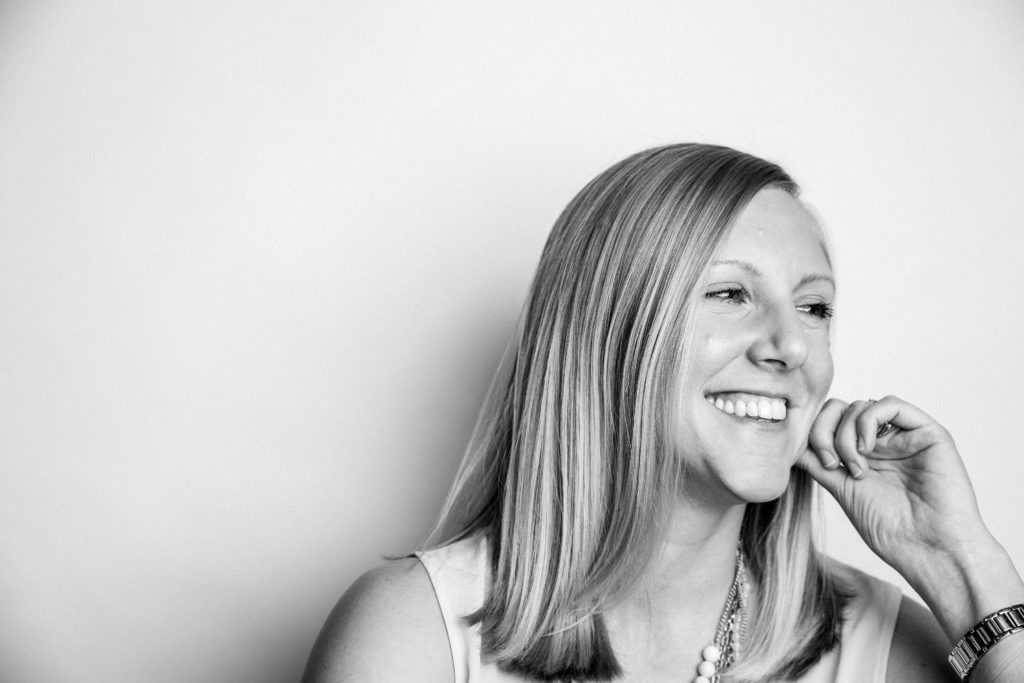
By Christie Dondero Bettwy
Knowing how to eat can feel complicated, especially during the holidays. We want to enjoy food and connection with family and friends, but we may feel guilty about eating certain foods or out of control around certain dishes. Growing up, I often turned to food for comfort when unable to cope with difficult emotions or circumstances. As I grew older, and my size and shape started to shift, I looked to food as the enemy, keeping me from the thinness I desired. This split relationship with food was a major source of stress for me in my adolescent years and eventually spiraled into a full-blown eating disorder in my late teens and early 20s.
I remember restricting myself for weeks before holidays just to uncomfortably gorge myself when the special day finally came. This pattern left me feeling guilty and fearful of food and my own cravings, and it stole quite a bit of joy from what should have been special and celebratory moments. I’m now fully recovered from my eating disorder and feel complete freedom around foods no matter the day of the year. After years of my own disordered patterns, I find great joy in helping clients and families at Rock Recovery heal their relationship to food.
Healing our relationship with food can be challenging, let alone teaching our children to find peace with theirs. Our disordered culture has programmed us to believe many lies about food that can be hard to untangle
and understand.
One of the most important things we can do for our children is to teach them the value of all types of food while modeling variety, balance and moderation—the basic tenets of the Intuitive Eating model from Evelyn Tribole and Elyse Resch. By removing moral judgment around food, we eliminate the need to make fear-based or frantic decisions about the types of food we will enjoy.
I’ll never forget the kindergarten class I spoke to a few years back. One of the children emphatically raised his hand, desperate to share his insights. When I called on him, he matter of factly said, “Chocolate is bad, and you shouldn’t eat it because it will make you fat.” He was precious and so proud of his statement, yet it made my heart drop. That statement is filled with judgment and fear. Kids are intuitive, and they understand that if an adult tells them chocolate is bad, and they eat it, then it makes them bad. So how does one stay good? Avoid chocolate. This pattern can be devastating for children and cause them to go through periods of unhealthy restriction and potential binge eating instead of enjoying foods in their proper times.
What can parents do to model a healthy relationship with food? One of the keys to food freedom is to not restrict food groups—barring true allergies or dietary limitations. I’ve heard many stories of well-intentioned parents keeping food locked up or restricting their children’s intake of certain junk foods for fear of their health. I sympathize with the fear parents feel and their desperate desire to keep their kids healthy and safe. Unfortunately, this method can do more harm than good. Often these kids feel completely out of control around food, and they are the ones at the birthday parties going back for thirds and fourths or sneaking into the pantry when everyone else is asleep. Restricting foods is one of the quickest ways to develop a disordered relationship with food.
While everyone’s needs are unique, I hope you will think carefully about how you can create a joyful and judgment-free approach to food this holiday season for your family. You may need greater support from a dietitian or specialist depending on your family’s needs, but it is never too late to seek help for your family to experience food freedom and a healthy approach to eating.
Christie Dondero Bettwy serves as the executive director for Rock Recovery, a nonprofit that helps people overcome disordered eating by combining clinical therapy services and community support. Having gone through recovery herself, she understands the depth of support needed to recover and is passionate about spreading the message that freedom from disordered eating is possible. She is an active speaker and shares her story with organizations and media outlets across the country. Christie lives in Falls Church, Virginia, with her husband, Ryan.







